Submitted by WA Contents
449 projects nominated for the 2022 Mies van der Rohe Award
Spain Architecture News - Feb 02, 2021 - 16:27 13611 views

The European Commission and the Mies van der Rohe Foundation have announced the list of nominated projects for the 2022 European Union Prize for Contemporary Architecture, Mies van der Rohe Award.
The list includes 449 works from 279 cities in 41 countries, which have been nominated by European independent experts, the national architecture associations and the Prize AdvisoryCommittee.
The nominated projects will be competing for the 2022 European Union Prize for Contemporary Architecture – Mies van der Rohe Award. These works will be joined in September with a new group of nominees finished between November 2020 and April 2021.
For the first time, the EU Mies Award counts with works from Armenia, Moldova and Tunisia.
The expansive list contains high-profiled architecture firms, including Bjarke Ingels Group, COBE, Grafton Architects, Helen & Hard, KAAN Architecten, MVRDV, Atelier Kempe Thill architects and planners, C.F. Møller Architects.
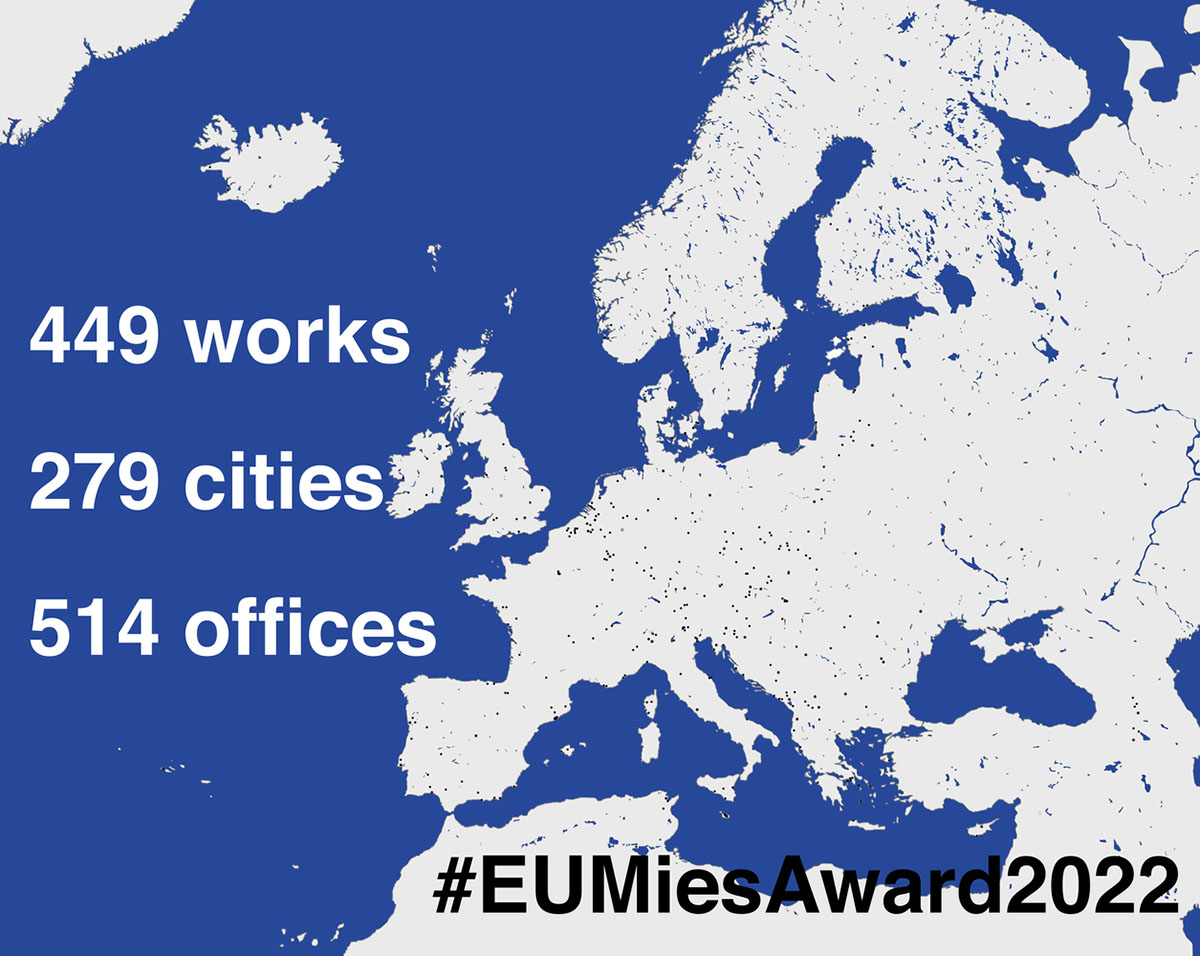
Image courtesy of the Mies van der Rohe Foundation
The Mies Van Der Rohe Award currently changed its calendar due to concerns about the Covid-19
As a result of the international concern about the spread of the coronavirus, the EU Mies Award has adapted this edition’s calendar in order to include all the works and to ensure the safety, rigor and excellence of the evaluation of all the projects.
The new cycle of the European Union Prize for Contemporary Architecture – Mies van der Rohe Award will reflect on the current challenges that architects, clients, policy makers and other professionals are faced with.
Some of these works have been finished during the Covid-19 pandemic and some are the result of commissions from the 2007-2012 financial crisis or shortly afterwards.
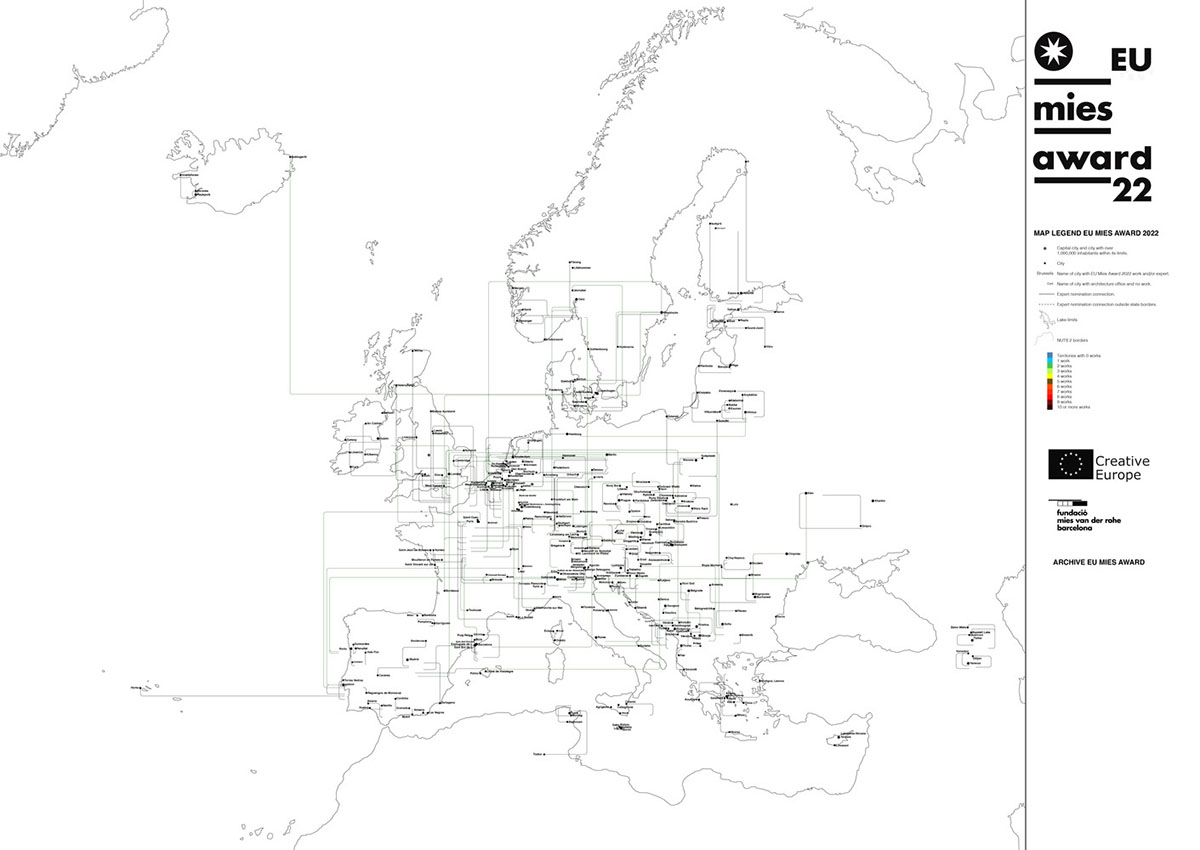
Image courtesy of the Mies van der Rohe Foundation
"They will be evaluated during the post-pandemic time in a clear attempt to continue visiting architecture and its users, neighbours, clients and designers face to face," stated the organization.
"Climate change, pollution, digitalization and demographic explosion are also, maybe more than ever, a global threat that endangers the planet, its limited natural resources and in consequence our wellbeing."
Buildings and infrastructures are responsible for at least 40% of all greenhouse gas emissions so the EU Mies Award must support the rethinking and replanning of Europe in such a way that it prioritises the environment through a cultural project in which design and sustainability are indissociable.
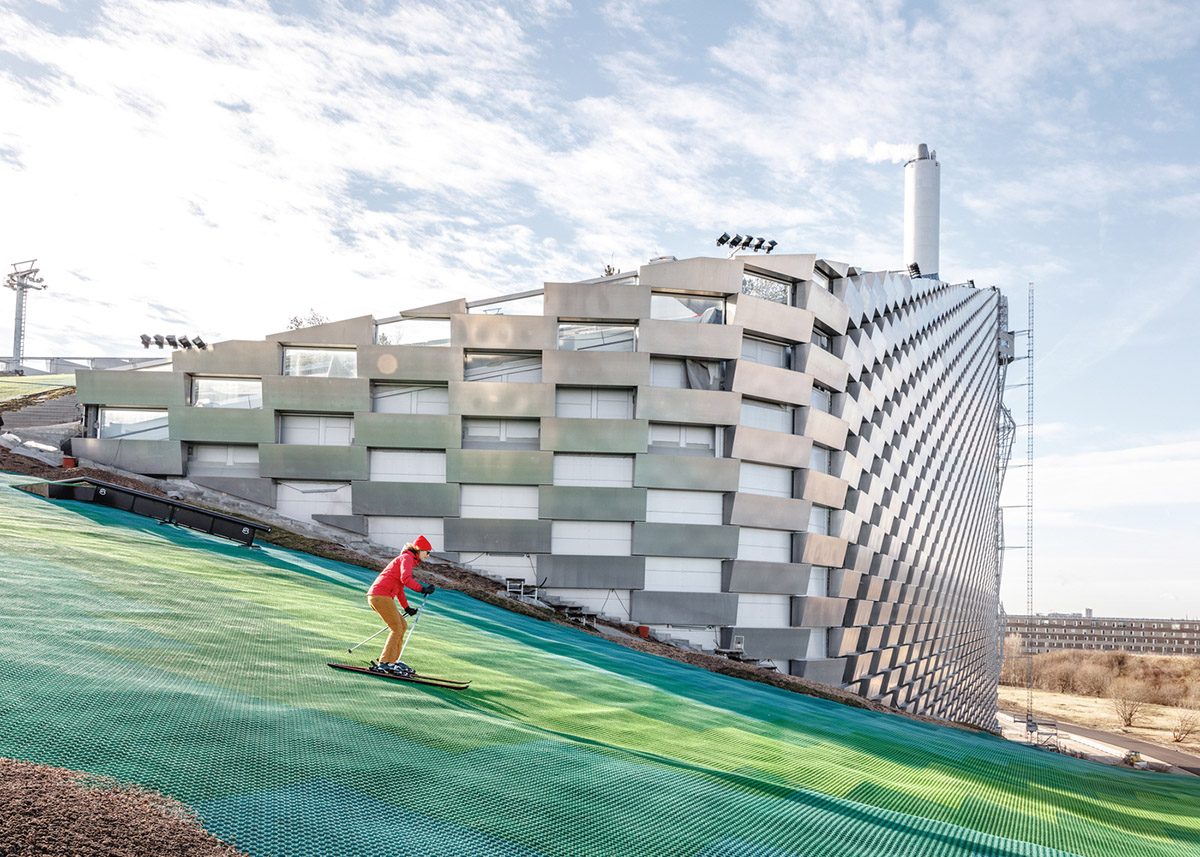
Denmark / CopenHill by BIG. Image © Rasmus Hjortshoj
Initiated in 1987 after an agreement between the European Parliament and the Barcelona City Council, the European Union Prize for Contemporary Architecture – Mies van der Rohe Award has been organised by the Mies van der Rohe Foundation and the European Commission since 2001.
Awarded biennially to works completed within the previous two years, this year exceptionally will evaluate the works completed in 2,5 years.
The principal objectives are to achieve a thorough understanding of the transformation of Europe’s built environment; to recognize and commend excellence and innovation in the field of architecture; and to draw attention to the important contribution of European professionals in the development of new ideas with the undeniable support of clients and the involvement of those who will become the users of these places.

Denmark / Karen Blixens Plads by COBE. Image © Rasmus Hjortshøj – COAST
According to the new calendar of the foundation, in September 2021, there will be a new announcement of the works nominated in the second phase of the EU Mies Award 2022.
In January 2022, the organization will announce the shortlisted works for the Award. In February 2022, there will be an announcement of the 5 finalist works. In April 2022, the organization will announce the winners.
In May 2022, the EU Mies Award Day will be held with conferences, debates and the Awards ceremony in the Barcelona Mies van der Rohe Pavilion, opening of the travelling exhibition, presentation of the publication and Open days for the selected works around Europe.
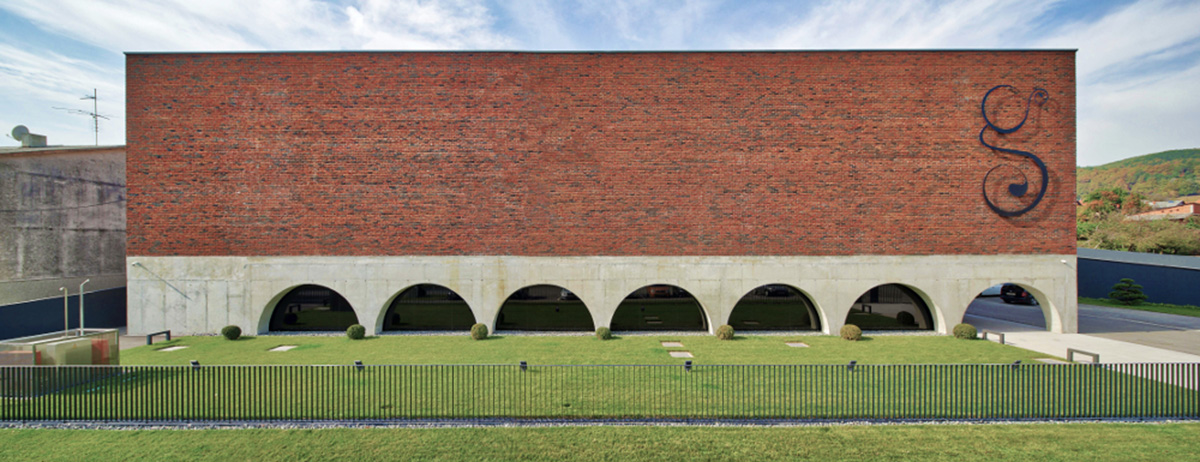
Croatia / Galić Winery by DVA ARHITEKTA. Image © Damir Fabijanic
"The EU Mies Award as the resulting work of a strong network of Europeans, shows that quality can be understood in many different ways but that it must always be connected to the present challenges with the environment and make cities and infrastructure more sustainable and resilient," said Anna Ramos Director Fundació Mies van der Rohe.
"By creating a bridge between the world of science and technology and the world of art and culture, the New European Bauhaus is an opportunity to make the Green Deal tangible and closer to citizens. The EU Mies Award has been and will continue to be a crucial European instrument to make this cultural change happen," said Hughes Becquart Culture Policy Officer, European Commission.
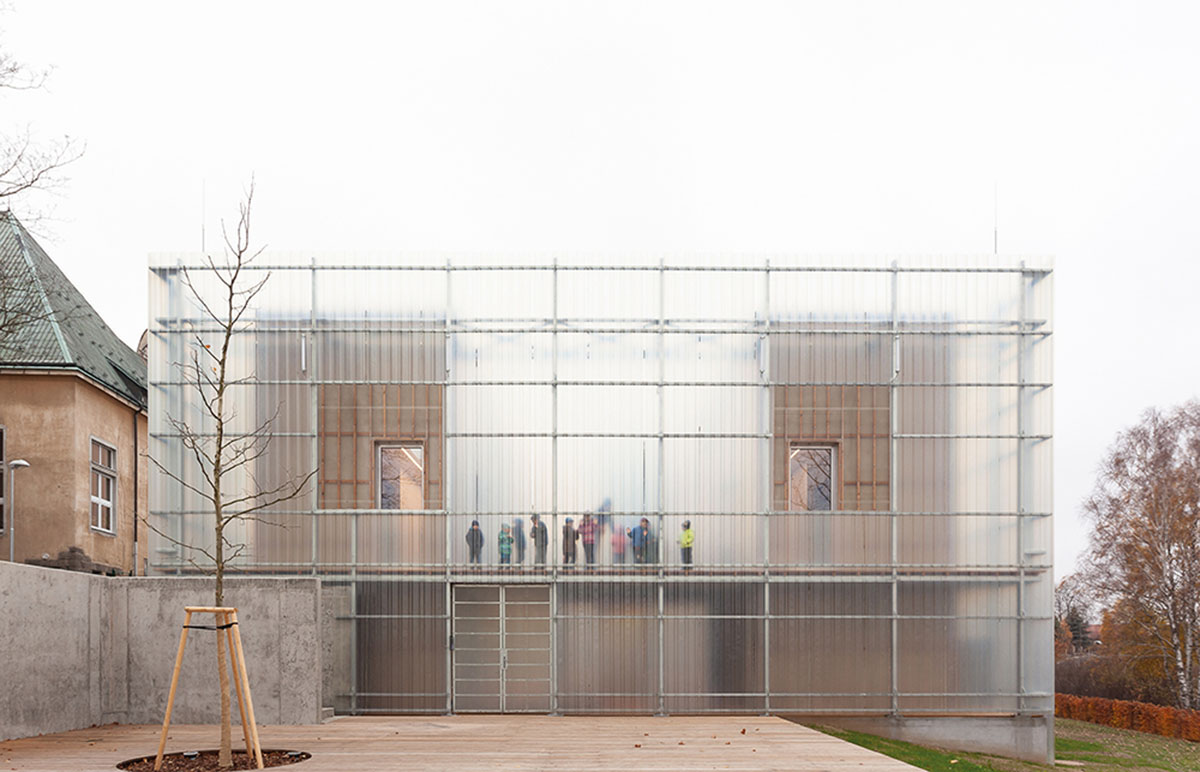
Czech Republic / Nova Ruda Kindergarten by PETR STOLÍN ARCHITEKT s.r.o. Image © Alexandra Timpau
The Mies van der Rohe Foundation also drew attention to some importance changes in the statistics.
It said: "For the first time since 2003, single houses (18,10%) has become the largest group of works, followed by collective housing (14,87%) and education facilities (14,01%), surpassing buildings with specific cultural programs.
"Cultural facilities such as museums, theatres, galleries and congress centres represent an 11,64% of all works."
"Collective housing buildings are particularly outstanding in cities such as Barcelona (6), Paris (4) and Riga (3). For a very long time, the most prominent examples of collective housing quality came from public-funded constructions, so it is significant that on this occasion, 75% of the collective housing projects have been privately funded," it added.
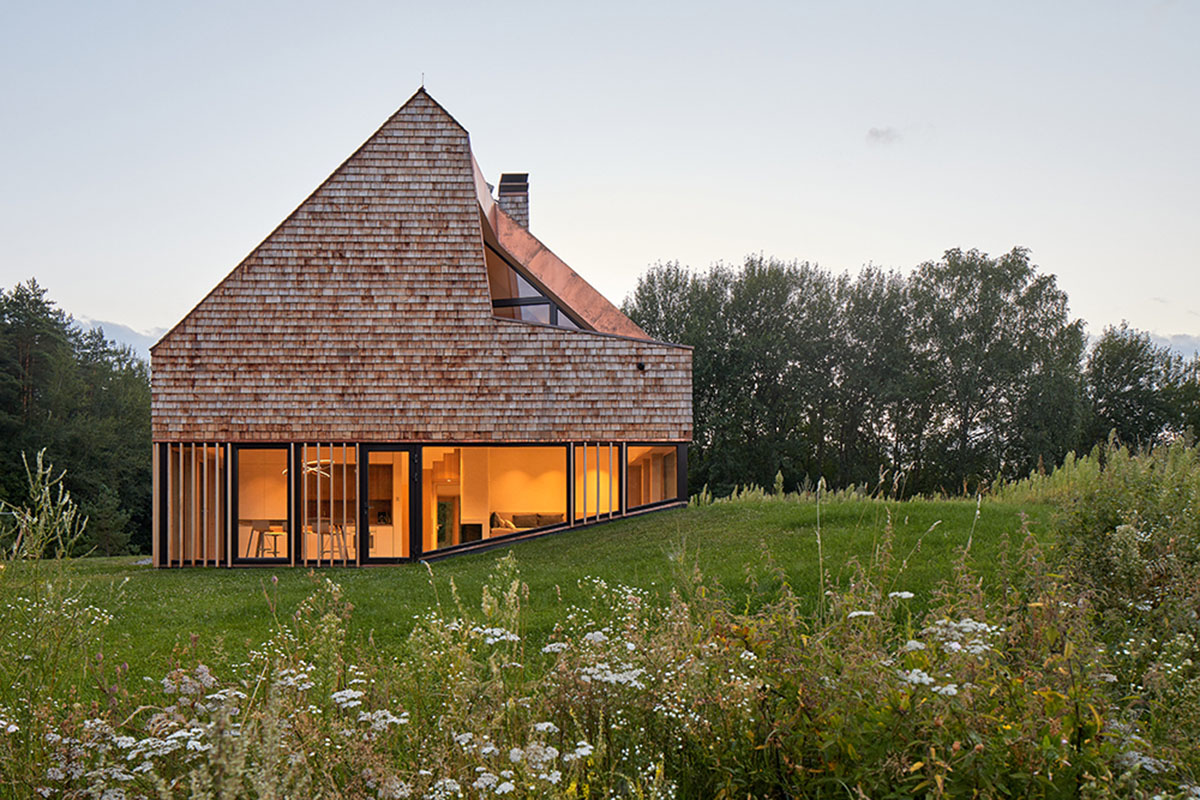
Lithuania / Cedar House by arches. Image © Norbert Tukaj
Regeneration keeps advancing
The Mies van der Rohe Foundation stated that "A quarter of the total number of nominees have to do with regeneration, understood in its broadest sense and including transformations, restorations, rehabilitations, extensions and adaptive reuse."
For example, in Ireland, the percentage rises to 62% and in places such as Belgium, half the works tackle with the transformation of what already exists, creating mostly cultural and educational buildings but also changing office buildings into housing.
The same situation can be found in the Czech Republic and Denmark where 5 of the 7 works from Copenhagen are the result of transformations while in Brussels, 3 of the 5 works are regenerations. The highest number of transformed existing constructions have become cultural buildings (31), followed by Education (18) and Urban Regeneration (13). It is worth highlighting that
Single Houses are also the result of transforming existing buildings and 11 of them can be found in the list of nominees while 11 Collective Housing buildings have also been the result of transformations.

The Netherlands / Museum De Lakenhal by Happel Cornelisse Verhoeven Architecten; Julian Harrap Architects LLP. Image © Karen Borghouts
Export and Import
The Foundation also added that "there has been an increase of transnational works (10%), in which architects from one country have built in another one or the works have been collaborations between architecture offices, teaming up with local partners."
"This represents a similar percentage than in 2017, a percentage that has been pretty constant since 2009, with 35-45 cross-border works."
The Netherlands is the country that exports most architecture with 8 works in which architects have built in other territories. France comes in second with 5 works. The countries in which most foreign offices have built have been Belgium with 7, France with 6, Germany with 6, and Austria with 4.
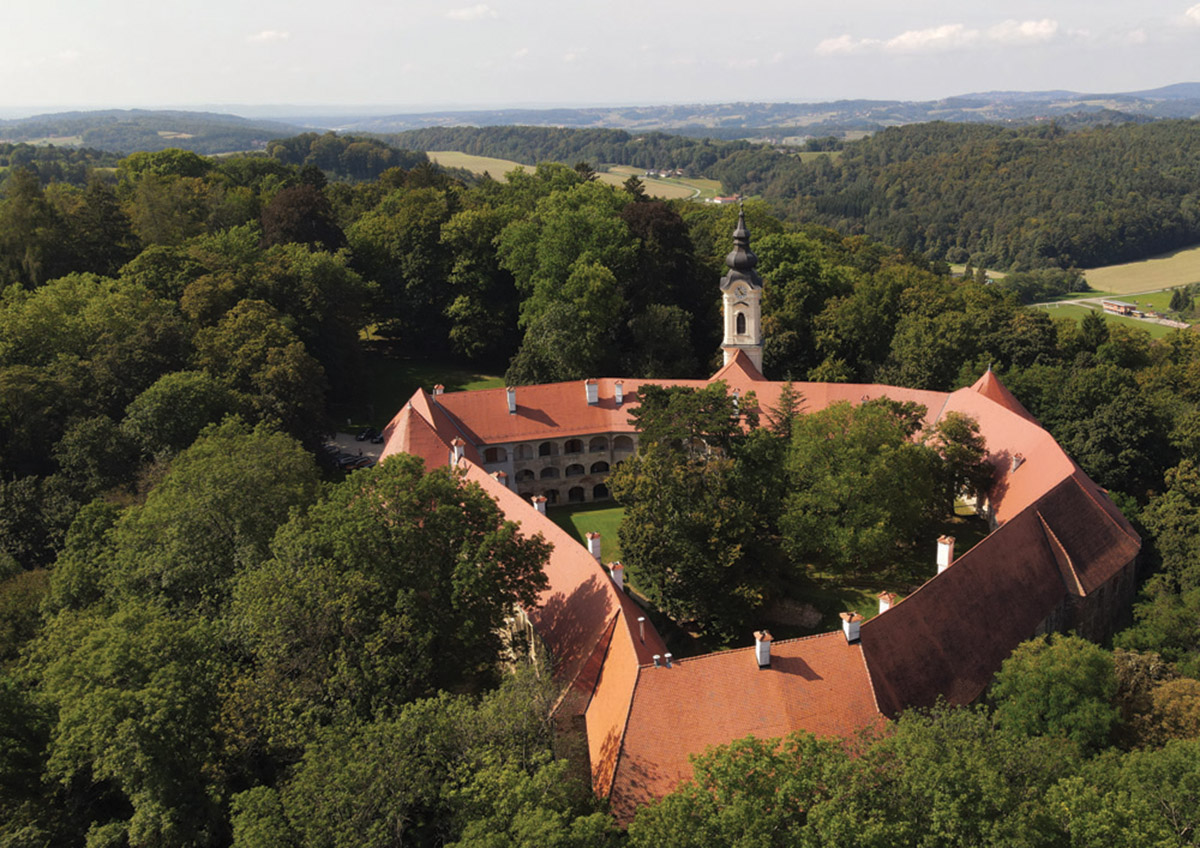
Slovenia / Gradual renovation of the castle Grad by ARREA architecture. Image © Mitja Kuret
The list shows that Bjarke Ingels Group (Copenhagen) is the studio with the highest number of nominated works (4), with one of them in Copenhagen (DK) and the other three in Bordeaux (FR), Jevnaker (NO) and Stockholm (SW).
It is followed by COBE (Copenhagen) which has works in Copenhagen, Køge and Fredericia, all in Denmark; DO Architects (Vilnius) has works in Vilnius and Klaipėda, all in Lithuania; Grafton Architects (Dublin) have built in Toulouse, Paris and London; and Helen & Hard (Oslo and Stavanger) have two works in Stavanger and one in Oslo, all in Norway.
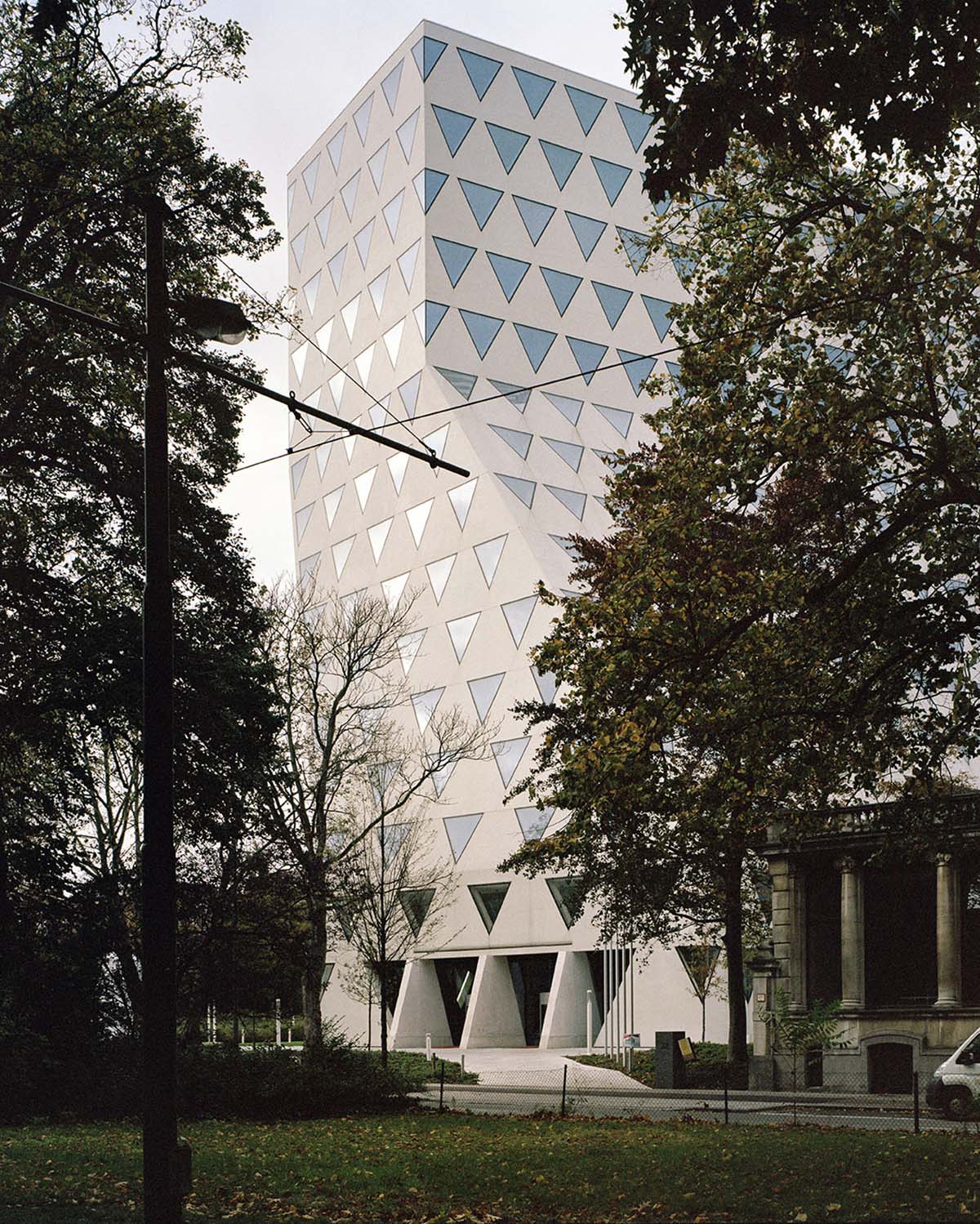
Belgium / Province Headquarters by Xaveer De Geyter Architects. Image © Maxime Delvaux
The Prize Winner will receive 60.000€ and a sculpture that evokes the Mies van der Rohe Pavilion of Barcelona.
The Emerging Architect Winner will receive 20.000€ together with the sculpture; the finalists and the clients also receive a sculpture, recognizing their essential contribution to contemporary architecture.
The Prize draws the map of the best European Contemporary Architecture with the Prize Winner, the Emerging Architect Winner and the Young Talent Architecture Award Winners.
The latter is the most recent addition to the Prize, which recognizes and rewards the best graduation projects of architecture students throughout Europe and beyond.
See the detailed information of the nominated works on Mies van der Rohe Foundation's website.
See the list of the countries for 449 nominated projects for the 2022 Mies van der Rohe Award:
Spain: collective housing
France: collective housing
Germany: culture
Belgium: education
Portugal: single houses
Italy: collective and single housing, culture and education
United Kingdom: single houses
The Netherlands: collective housing
Poland: collective housing, culture, and urban projects
Denmark: infrastructures
Austria: education
Ireland: culture and education
Lithuania: single houses
Slovenia: education and single houses
Ukraine: education and urban projects
Greece: single houses
Hungary: sports and leisure
Norway: culture
Czech Republic: commerce
Croatia: education, food & accommodation and urban projects
Georgia: collective housing and urban projects
Latvia: collective housing
Bulgaria: collective housing and office
Finland: education and single houses
Montenegro: single houses
Romania: collective housing
Estonia: culture
North Macedonia: single houses
Sweden: collective housing
Cyprus: single houses
Serbia: mixed-use buildings and single houses
Slovakia: single houses, funerary and urban projects
Luxembourg: collective housing, commerce, food, and sport
Kosovo: collective housing
Malta: single houses
Albania: single houses
Armenia: education
Bosnia - Herzegovina: government & civic, landscape and single house
Iceland: culture, single house, and sport & leisure
Tunisia: office buildings
Moldova: culture
Top image: Spain / Casa Cero by DJ Arquitectura. Image © Jesus Granada
